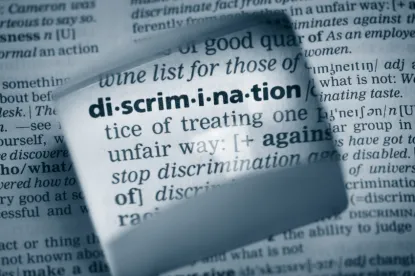Riding on the 2018 wave of workplace sexual harassment legislation, on June 19, 2019, the New York state assembly and senate voted to toughen the state’s anti-discrimination and anti-harassment law (S. 6577/A. 8421 and related amendment S. 6594/A. 8424). Governor Cuomo, a proponent of the bill, is expected to sign the bill into law.
Sponsored by Senator Alessandra Biaggi (D, WF, 34th Senate District) and driven by the Sexual Harassment Working Group, the bill enhances the package of anti-harassment laws that Governor Andrew Cuomo signed into law in 2018. As we reported here and here, the 2018 New York laws require covered employers to provide workplace anti-harassment trainings, and prohibit mandatory arbitrations and non-disclosure agreements for settlement of sexual harassment claims (unless expressly requested by the employee or otherwise inconsistent with federal law).
For our New York employers – and indeed for all employers monitoring trends in workplace anti-harassment law – here are the main points of the soon-to-be enacted law.
-
Elimination of the “severe and pervasive” standard. Employers may be familiar with the long-standing requirement taken from the Title VII hostile work environment realm that, in order to prevail on a harassment claim, an employee must establish that the harassing behavior is severe or pervasive enough to change the conditions of his or her employment and create an abusive environment, considering both objective and subjective standards. To become effective 60 days after enactment, the new law expressly removes this “severe and pervasive” floor for harassment claims. Rather, the law stipulates that employers may defend themselves against harassment liability by demonstrating that the harassing conduct does not rise above the level of what a “reasonable victim” of discrimination would consider “petty slights or trivial inconveniences.”
-
Elimination of the Faragher-Ellerth defense. Eliminating another long-standing affirmative defense relied upon by employers (often referred to the Faragher-Ellerth defense based on several Supreme Court Title VII cases), the New York bill expressly states an employee’s failure to utilize the company’s internal complaint procedure is not determinative of the company’s liability. In other words, New York employers will not be able to avoid liability for sexual harassment by showing the employee did not follow the company’s complaint policy/procedure for reporting harassment.
-
Statute of Limitations Extension. Effective one year after enactment, the New York legislation extends the statute of limitations for employees to report sexual harassment to the NY Division of Human Rights from one year to three years.
-
Expansion of Protected Classes. Expanding beyond just sexual harassment, the New York law expressly prohibits harassment based on any protected characteristic under NY State Human Rights Law (NYSHRL), including, for example, an employee’s age, race, creed, color, national origin, sexual orientation, gender identity or expression, military status, sex, disability, predisposing genetic characteristics, familial status, marital status, domestic violence victim status, and/or previous filing of a complaint.
-
Prohibition of NDAs and Mandatory Arbitration. To be effective 60 days after enactment, the law prohibits employers from requiring non-disclosure agreements and arbitration when settling a claim of discrimination or harassment based on any protected characteristic (not just sexual harassment, which was previously in place) unless expressly requested by the employee or otherwise inconsistent with federal law.
-
No Need to Establish Comparator Treatment. The new law states that an employee need not demonstrate the existence of a comparator employee for purposes of a harassment claim. In other words, whereas employers could previously defend against liability for employee harassment claims by showing the employee could not demonstrate more favorable treatment of a comparator employee (i.e. an employee with the same duties, supervisor, and experience level) outside of the employee’s protected class, the new law states an employee need not establish such a comparator.
-
Attorneys’ Fees and Punitive Damages. To be effective 60 days after enactment, reasonable attorneys’ fees must be awarded to the prevailing party with respect to all claims for employment discrimination (not just at the discretion of the court). However, for a defendant to recover attorneys’ fees, the defendant must show that the action was frivolous. The new law also allows for punitive damages for all employment discrimination actions against private employers (not just sex discrimination).
-
Non-Employees Protected. Effective 60 days after enactment, the law expands protections to domestic workers and independent contractors regarding all forms of harassment and discrimination.
-
Language Requirements. Employers must provide notice of their sexual harassment prevention policies and training in English and their employees’ primary language.
With these changes, New York will now have some of the strongest policies against workplace harassment. Although it is yet to be determined how New York courts will interpret these new standards and requirements, New York employers should be prepared to field employee complaints and lawsuits for workplace issues that may not have previously reached their desks. Employers should also consider revising their anti-harassment and internal complaint policies and procedures to accommodate the law’s elimination of the ‘severe and pervasive’ standard of harassment and the Faragher-Ellerth defense, along with the law’s expansion of protected classes in the anti-harassment context. Template severance agreements and arbitration agreements for New York employees should be updated for legal compliance as well.





 />i
/>i
